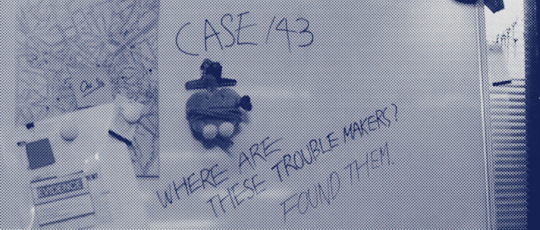Text
Case 143: Love in Politics and Ethics.

Love can be defined in more ways than one, can be perceived differently as well. I never thought of love in a different light, I always think of it as just an emotion and that it doesn't go deeper than it is—but after finishing some readings and discovering articles on the internet; love is more that what I initially thought of.
Before, I wouldn't associate love in politics because—love in politics? How? Old unaware me would've found the thought ridiculous.
Love in political philosophy can be studied in various aspects and perspectives. Some see love as a cause for social dominance over the other, can be used to empower men and bring down women. Some think it's a result of patriarchy. In a reading that I've read about feminism, love supports the notion of doing anything in the name of it be it control or abuse and that love in patriarchal culture is built on the idea of domination, subordination, and possession. If we want to love then we have to practice feminist politics because mutuality and equal respect is a strong foundation of a relationship.
The ethical area of love involves the moral adequacy of loving someone, what you should and should not do. There are different questions raised around the subject, gives you something to think about. Is it ethical to love an object? Is it permissible to love all people equally? Should love only be between you and one person? Should love transcend sexual desires? A lot of question like that. Some of the subjects are linked in the ethics of sex, which touches upon the relevance of sexual activity and reproduction.
Love reaches a wide variety of philosophical fields and is probably always present in them. Theories of human nature, the self, and the mind are notable in said fields. Philosophers like Plato and Aristotle had talked about it before as well in their works. Love is a broad subject, much like the ocean, with depth and it comes very well in Philosophy. It deserves to be talked about more, to be mentioned, and taught.
8 notes
·
View notes
Text
Socrates should come back from the dead: my thoughts on Democracy.
This blog is for our Philosophical Anthropology's thought piece.
I stumbled across a certain video on youtube during election season's campaign months. Out of curiosity, I watched it and ended with a new found perspective on Democracy.
youtube
I never thought of democracy beyond its surface level because I'm not really super smart in terms of politics, so having this video on my youtube recommendations by chance was a nice way to discover something new to learn or to re-learn.
The video discussed Socrates' views on democracy. I think he didn't really hate democracy per se, only criticized it because he saw faults in this system. In a conversation he had with Adeimantus that was documented by Plato, he brings up a scenario wherein he compared society to a ship. He argued (lectured, more so) if you were heading out on a journey in the vast sea, which group of people would you want deciding to take charge of the vessel? Just anyone or a group of people knowledgeable about seafaring? In which Adeimantus replied with “the latter.” Socrates rebuts with, so then why do we keep thinking that any old person should be fit to judge and choose who will rule a country? He had opened this conversation in an attempt to show the flaws of democracy.
Socrates points that voting is a skill and not a random intuition and like any skill—needs to be taught systematically. He claims that letting just anyone vote without education supporting their choices is as irresponsible as letting them in charge of a trireme sailing to Samos in a frenzied storm. It's not that Socrates believed that only a few can vote, though he infers that the only ones who be let near a vote are people who think of issues deeply and rationally.
Upon hearing Socrates' take away about democracy, I've came to realize that he has a point and that I kind of agree.
It's a good point that the only ones who should vote are people that are concerned of the country's issues and well-being because that way a nation can have a leader who wants to help. Don't get me wrong, I'm all for everyone having the right to vote for someone they want but like Socrates' point—have you thought of your vote rationally? Did wisdom came with your choices?
Sometimes I wonder, when will the people think of who the country needs instead of who they want? These days, it just seems like the people only vote for the sake of winning and not because they care at all.
What would Socrates' say or think if he sees what democracy has evolved to? Will he be shocked? Give a lecture like what he did with Adeimantus? Point out the flaws?
Sometimes I think Socrates should come back from the dead—but I doubt anyone today would listen, I bet that he will be forced to take hemlock again.
1 note
·
View note